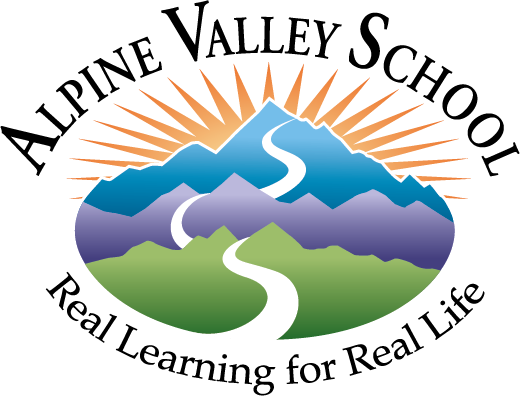This is What Innovation Looks Like
Image: Cleaning supplies arranged in a bucket
An 11 year-old student is sweeping in the Sunny Room, a large art space in the center of Alpine Valley School. He stops for a moment, wiping his brow. "Whew," he tells me, "Only thirteen more chores left to go!"
This is not how things are normally done. Typically, on Tuesdays and Fridays each student at AVS signs up for a chore that must be completed in the afternoon. However, today is different. Today, one of our older teenagers has come up with a plan.
"If I pay you twenty dollars, would you do everyone's chore today?" He asks the 11 year-old.
The student considers. "How would that work?"
Together, they seek out Connie, who is the chair of the Aesthetics and Use Committee and ask her about the proposal. The three of them discuss the specifics and come away with a consensus. A (the 11 year-old) will do everyone's chore in exchange for the $20 promised by T (the 15 year-old). Connie is fine with this arrangement, so long as they inform everyone else at school that their chores are being done for them and get all the chores checked once A is finished, just like individual students would be expected to.
So now A is washing the glass doors at the front of the school, beaming with pride. T follows him, chatting companionably while all the chores are completed and checked, one by one.
To my knowledge, and I've been at AVS for a long time, no one has ever done this before. For a time, Alpine Valley School employed the services of a professional cleaner, but aside from that it has never even occurred to me that all of the chores might be completed by a single individual. Back in my corporate days, we would have called this a disruptive innovation, an act that is highly prized in the working world (Steve Jobs was considered by many to be the king of the disruptive innovators). T came along and changed the game in a way no one even considered it could be changed, and that is worth acknowledging.
So much of what happens at Alpine Valley School flies under the radar. We don't have grades, or report cards, or parent-teacher conferences. There's not a lot of hard data available to make parents feel warm and fuzzy about what their children are doing at school day-to-day. That's why I think it's so important to call out these little moments that might otherwise pass us by, like T's chore innovation. These experiments, "what happens if I do X...", unfold all the time, as do the kinds of negotiations that T and A did with Connie in her official capacity. In fact, they occur so frequently that most of us simply take it for granted.
We had a visitor at school last week (a founder of the Miami Sudbury School) who observed Judicial Committee and afterwards looked at me in wonder. "Those kids just ran and participated in a very formal meeting and they didn't think anything of it," she said. Which made me realize that I didn't think much of it either. A kid one-third my age just told me what to do and how to do it for about an hour and it seemed like the most natural thing in the world. How awesome is that!
“Those kids just ran and participated in a very formal meeting and didn’t think anything of it.”
It takes a while, but A eventually finishes all the chores. T pays him his $20 and the whole event is over with. Who knows if they'll ever repeat the experience. In fact, it's likely that in a few weeks no one will even remember that it happened - because to our kids effort, creativity, teamwork, and innovation are just part of what they experience at school every single day.
For more like this, check out Episode 14 of the AVS Podcast: Raising Entrepreneurs.

